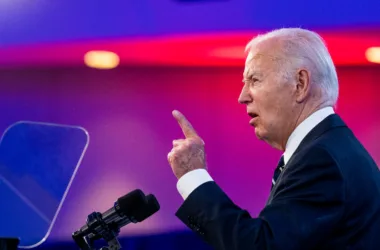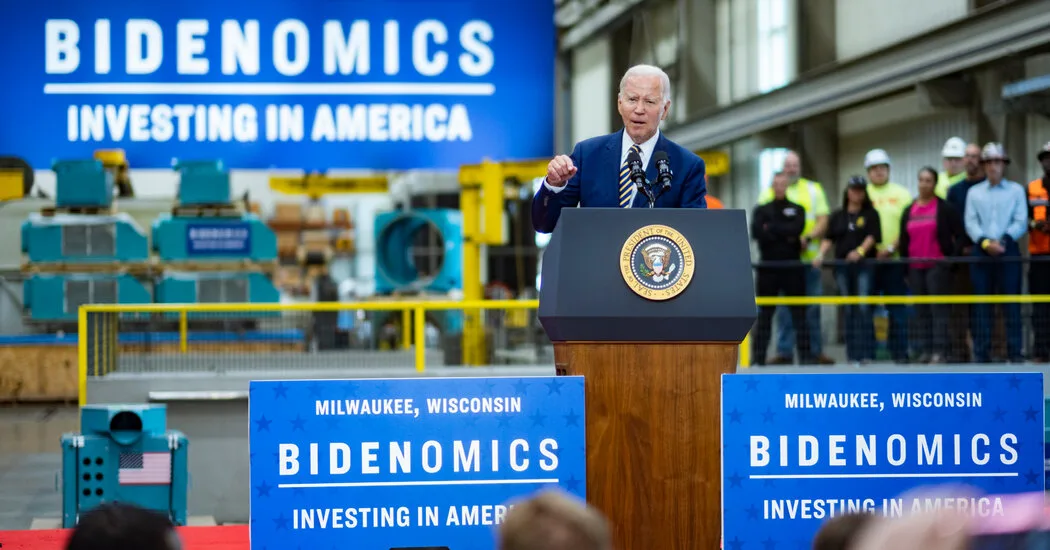Lucrative new tax breaks and other incentives for advanced manufacturing that President Biden signed into law appear to be reshaping direct foreign investment in the American economy, according to a new analysis by the White House Council of Economic Advisers. The analysis shows that a greater proportion of spending on new and expanded businesses is now going towards the factory sector.
Data from the first months after the enactment of the incentives indicate that, when adjusted for inflation, a key measure of foreign investment slightly decreased from 2021 to 2022. This suggests that although the taxpayer dollars allocated by Mr. Biden for manufacturing have not increased the overall amount of foreign direct investment in the economy, they have influenced where that investment is directed.
In 2022, two-thirds of foreign direct investment in manufacturing, excluding corporate acquisitions, was observed. This is more than double the average share from 2014 to 2021. While this surge is relatively small compared to the overall economy, administration officials view it as a positive indication that multinational companies are being attracted to America by Mr. Biden’s industrial policy agenda. The analysis further reveals that construction spending on new manufacturing facilities in the United States has significantly outpaced that of England, continental Europe, and other wealthy Group of 7 nations.
According to a Commerce Department survey, investors from Britain, continental Europe, Canada, Japan, and South Korea are among the primary contributors of foreign investment in American factories, with minimal investment associated with China. This foreign investment is largely focused on computer and electronics manufacturing, particularly in semiconductors, which were a central part of a bipartisan industrial policy bill signed by Mr. Biden. Additionally, a climate, health, and tax bill signed during the summer included substantial subsidies for renewable energy technology manufacturing.
Since the enactment of these laws, numerous companies, including foreign entities such as Taiwan Semiconductor Manufacturing Company, have announced planned investments in the United States totaling more than $500 billion. These investments involve the establishment of semiconductor plants in Arizona, advanced battery facilities in Georgia, and more.
Administration officials argue that even if the overall level of investment remains unchanged, shifting investment towards factories can have positive effects on the economy. This includes higher wages in manufacturing jobs and the potential for increased productivity as foreign firms share knowledge with existing domestic manufacturers.
Jared Bernstein, the chair of the Council of Economic Advisers, stated, “Foreign direct investment in manufacturing doesn’t just help us build up this critical sector in key focal areas of Bidenomics, such as semiconductors and clean energy. It also allows us to learn valuable production lessons from international companies in these and other areas.”









